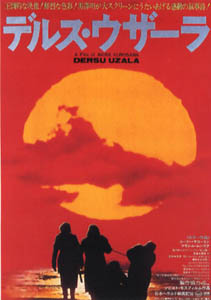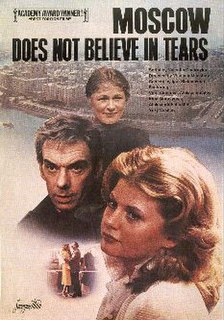
The Soviet Union submitted films for the Academy Award for Best Foreign Language Film between 1963 and 1991. The Foreign Language Film award is handed out annually by the U.S.-based Academy of Motion Picture Arts and Sciences to a feature-length motion picture produced outside the United States that contains primarily non-English dialogue. [1]

The Soviet Union, officially the Union of Soviet Socialist Republics (USSR), was a Marxist-Leninist sovereign state in Eurasia that existed from 1922 to 1991. Nominally a union of multiple national Soviet republics, its government and economy were highly centralized. The country was a one-party state, governed by the Communist Party with Moscow as its capital in its largest republic, the Russian Soviet Federative Socialist Republic. Other major urban centres were Leningrad, Kiev, Minsk, Tashkent, Alma-Ata, and Novosibirsk. It spanned over 10,000 kilometres (6,200 mi) east to west across 11 time zones, and over 7,200 kilometres (4,500 mi) north to south. It had five climate zones: tundra, taiga, steppes, desert and mountains.

The Academy of Motion Picture Arts and Sciences is a professional honorary organization with the stated goal of advancing the arts and sciences of motion pictures. The Academy's corporate management and general policies are overseen by a Board of Governors, which includes representatives from each of the craft branches.
In motion picture terminology, feature length is the length of a feature film. According to the rules of the Academy of Motion Picture Arts and Sciences, a feature-length motion picture must have a running time of more than 40 minutes to be eligible for an Academy Award.
Contents
Each year, the Academy invites countries to submit their best films for competition, with only one film being accepted from each country. [1] The Soviet Union had a strong record in the category, receiving a total of nine nominations between 1968–1984, including three winners – War and Peace , Dersu Uzala and Moscow Does Not Believe in Tears . Eight of the nominees, including all three winners, were produced by Russian film studios. After the breakup of the Soviet Union, films representing the Russian Federation won a further five nominations, including one Oscar win for Burnt by the Sun . [2]

War and Peace is a 1965–67 Soviet war drama film co-written and directed by Sergei Bondarchuk and a film adaptation of Leo Tolstoy's 1869 novel War and Peace. The film, released in four installments throughout 1966 and 1967, starred Bondarchuk in the leading role of Pierre Bezukhov, alongside Vyacheslav Tikhonov and Ludmila Savelyeva, who depicted Prince Andrei Bolkonsky and Natasha Rostova.

Dersu Uzala is a 1975 Soviet-Japanese co-production film directed by Akira Kurosawa, his first non-Japanese-language film and his first and only 70mm film.

Moscow Does Not Believe in Tears is a 1980 Soviet film made by Mosfilm. It was written by Valentin Chernykh and directed by Vladimir Menshov. The leading roles were played by Vera Alentova and by Aleksey Batalov. The film won the Academy Award for Best Foreign Language Film in 1981.




